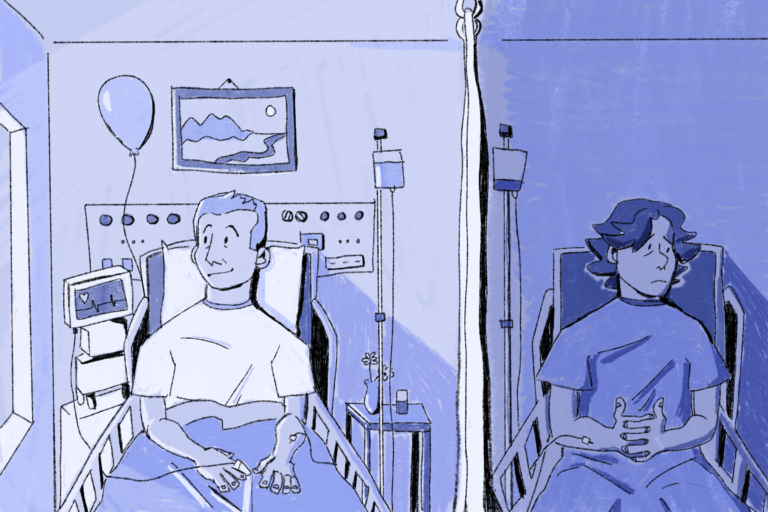Wealth and longevity seem to be closely related. The concept of a VIP healthcare system emerges as a stark reminder of the disparities that exist in our society. While the average life expectancy of Americans is just over 76 years, consider the amazing lifespans of several social figures like Queen Elizabeth II and Rosalynn Carter. They have almost reached the 100-year milestone. This is no mere coincidence, as elites have access to a different kind of medical care, VIP treatment beyond the usual medical care for the general population. The longevity of people who lived wealthy lives prompts serious investigation. Is the secret to longevity a closely guarded privilege that only the rich have access to?
The privileged enjoy access to upscale clinics affiliated with leading medical institutions, including the University of Michigan's own Concierge Executive Health Program, which provides dedicated and thorough treatment beyond that offered to the general public. We promise personalized treatment. The preferential treatment given to VIPs, such as rapid access to specialists, surgical priority, and exclusive access to the latest medical advances, tips the scales in their favor. These VIP clinics allow patients to stay on dedicated floors with luxurious amenities, including chef-prepared meals and physician-only services.
After all, medical professionalism can be compromised to the rich and powerful who are considered VIPs. The term VIP applies to patients who, consciously or unconsciously, pressure healthcare professionals to treat them with special attention. Under intense scrutiny, these medical professionals may become overpaid for treating VIP patients, driving up the cost of simple routine tests.
Unlike VIP patients, most people cannot afford to pay for their medical care out of pocket. This area of medicine becomes inaccessible to the average citizen, impeding progress toward health equity. Everyone deserves the opportunity to live the healthiest life possible, regardless of their socio-economic status.
These executive clinics perpetuate the perception that some lives are more valuable than others. The very existence of these facilities reflects and reinforces a social structure that values wealth and looks down on those who cannot afford it. A clinic that serves a high-profile individual can divert attention, resources, and provider attention from other patients in the same facility to that individual's needs. This kind of special consideration leads to a strained system that inadvertently jeopardizes the well-being of those not lucky enough to be labeled as VIPs.
Wealth affords individuals the time and resources to take preventative health measures, revealing socio-economic disparities. A Massachusetts Institute of Technology study found that men in the top 1% live 14.6 years longer than men in the bottom 1%. VIP patients pay more to receive her VIP treatment, which results in better results.
To be fair, some patients, such as celebrities and politicians, may actually require special treatment to protect their privacy due to legitimate health concerns. In 2007, 27 hospital staff in New Jersey were suspended for viewing George Clooney's medical records without his consent after a motorcycle accident.
Some argue that hospitals that provide VIP medical services could theoretically use the high fees charged for these services to subsidize assistance to low-income patients. This idea is appealing on the surface. By catering to the needs of the wealthy, hospitals can generate additional revenue to help those in need and fund unprofitable businesses. However, this argument overlooks the underlying principles of health economics and the financial incentives driving these programs.
In practice, hospitals that operate VIP programs often prioritize profit maximization over an equitable reallocation of resources, with high-income focuses on attracting customers. This approach does not address the root causes of health disparities. It perpetuates a model in which access to quality care depends on economic privilege, exacerbating rather than alleviating existing disparities. This imbalance is not only inequitable, but contributes to a systemic failure to allocate health care resources based on financial status rather than medical need. To truly address health disparities, system reforms should prioritize equitable access to health care resources and counter profit-driven incentives that maintain exclusivity in health care delivery.
In order to achieve a just and equitable society, it is essential to examine the structures that perpetuate inequality. The VIP medical system is a system that gives preferential treatment to the privileged class and disadvantages others. Dismantling existing wellness hierarchies requires a shift in mindset and societal values. Everyone has the right to live a long and healthy life, regardless of their socio-economic status. It is incumbent on everyone to challenge the status quo and work towards a health system that prioritizes the well-being of all people.
Giovanna Gallegos is an opinion columnist and can be contacted at: jovanna@umich.edu.


